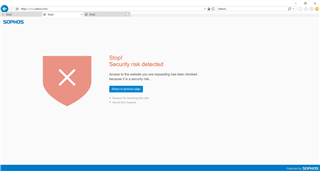I followed the procedures here: https://community.sophos.com/kb/en-us/123048
However, I cannot reach any websites anymore, such as google, yahoo, etc, after I have checked the box to "decrypt and scan https" in my firewall rule. What am I doing wrong?
I have tried restarting the browser, rebooted the computer, removing the certificate and reinstalling, but nothing works. What can I do to fix it?
This thread was automatically locked due to age.



